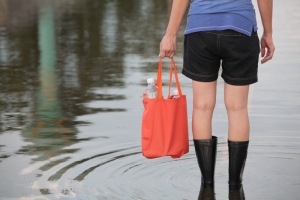***Closing date extended***
OPPORTUNITY
Natural disasters are extreme and sudden events caused by environmental factors that injure people and damage property. Extreme implies that such events are very severe, sudden implies that they also happen unexpectedly. Although there is no a precise pattern of the occurrence of such phenomenon, the general trend, is that: a) the yearly number of natural disasters increases, b) the disasters are becoming extraordinary more powerful and active in a shorter period of time. Scientists have been investigating what the causes might be, and while they do not agree on all the details, they all confirm that climate change is THE main trigger to explain the increase of the likelihood of weather-related natural disasters. If the occurrence of the disasters keeps on increasing and its aftermath keeps on getting more severe, on the positive side, new terrestrial technologies (such as immersive realities, holography, 5G), empowered by advancements in the space sector (such as mega constellations for imaging and for communication) create opportunities for new services and new approaches to emergency management.
TOPICS OF RELEVANCE
The management of a disaster includes 4 phases: mitigation, preparedness, response and recovery. This call is open for services that are relevant for the phase of preparedness (i.e. planning how to respond to a disaster) and response (i.e. efforts to minimize the hazards created by a disaster). For the proposed kick-start, only services related to natural disasters are eligible. Man-made disasters such as consequences of criminal acts, nuclear testing or oil spills are not the subject of this call.
Natural disasters are usually broadly classified into categories including: geophysical such as earthquakes, avalanches, landslide and volcanic eruptions; meteorological/climatological such as heat and cold waves, hurricanes, droughts, hail and ice storms, coastal erosion, storm surges; hydrological such as floods and tsunami; biological such as crop pests and diseases, wildfires, and urban fires.
The identified topics for each natural disaster are to be seen as representative examples of a much wider field.
Drought:
- Management of water resources
- Energy production
- Management of waterway transport
- Wildfire management
- Sustainable Tourism
Coastal Erosion:
- Protection of transport infrastructure and building
- Preservation of sites and monuments
Earthquake:
- Monitoring of damaged houses
- Monitoring of emergency shelters
- Assessment of the impacted residential areas and cropland
Flood /Sea Level Rise:
- Management of Flood Protection Systems/Flood Defences
- Urban Planning
There are a few services which cross all natural disasters, and in fact interlink with different type of events, some are relevant before and others after an event happens. Examples are reported as follows:
- Disaster risk assessment
- Disaster damage assessment
- Emergency relief and search & rescue
VALUE OF SPACE
New technologies like augmented reality, big data analytics and image-recognition algorithms in combination with input data collection from satellites and integration of space technologies, offers a wide range of opportunities for new services.

Satellite Earth Observation (EO)
Satellite Earth observation data can provide pictures for risk mapping, disaster situation awareness, post-event damage assessment and reconstruction phase. They are a valid aid to detect precise changes on land, support site selection, urban planning, and optimisation of water resources. They can also provide inputs for monitoring greenhouse gas concentrations, land and surface temperature and water quality parameters.
Satellite navigation (Satnav)
Global Navigation Satellite Systems (GNSS) provide precise positioning and guidance. GNSS data can support trace and tracking applications and geo-tagging data collection. GNSS is also needed by RPAS during a flight to report the position.
Satellite Communications (Satcom)
Satellite communications can provide reliable communication for different data speeds, latency, and traffic needs during an emergency when terrestrial infrastructure is not available.
WEBINARS
- 23 April 2020 - 15:00 CEST
- 04 May 2020 - 15:00 CEST
WHAT WE LOOK FOR
Kick-Start Activities elaborate the business opportunity and the technical viability of new applications and services that exploit one or more space assets (e.g. Satellite Communications, Satellite Navigation, Earth Observation). This call for Kick-Start Activities is dedicated to the theme "Preparedness and Response to Natural Disasters", which means that the call is open to companies that intend to develop space-enabled services to plan how to respond to a disaster and to react in order to manage the aftermath of the disaster.
HOW TO APPLY
1. Register by completing the online questionnaire on ESA-STAR Registration (this provides for the minimum ‘light registration’)
2. Download the official tender documentation (Invitation to Tender) and create a ‘Bidder Restricted Area’ via EMITS Reference AO/10345 from May 7th 2020.
3. Write your proposal and obtain a Letter of Support from your National Delegation, if needed (see Authorisation of Funding section below).
4. Submit your proposal via ESA-STAR Tendering by June 18th 2020 13:00hr CET.
Funding Scheme
ESA Space Solutions can provide funding to perform Kick-Start activities to any company (economic operator) residing in the following Member States : Austria, Belgium, Czech Republic, Denmark, Estonia, Finland, France, Germany, Greece, Hungary, Ireland, Italy, Luxembourg, the Netherlands, Norway, Poland, Portugal, Romania, Spain and Sweden.
Currently Germany, Luxembourg and Norway have pre-approved funding for this Kick-Start activity. Switzerland and the UK are not supporting Kick-Start activities. Applications from any other Member State will require a letter of approval from their National Delegation.
Applicants must inform the National Delegation of the Country they are residing in to obtain a letter of authorisation allowing the funding of the proposed activity. Contact details of each national delegate can be found here.
Kick-Start Activities are funded at:
- 80% by the European Space Agency for a maximum of €64K per contract for SMEs*
- 75% by the European Space Agency for a maximum of €60K per contract for non-SMEs
*SMEs, or “Small and Medium enterprises”, are defined here: EU recommendation 2003/361.



